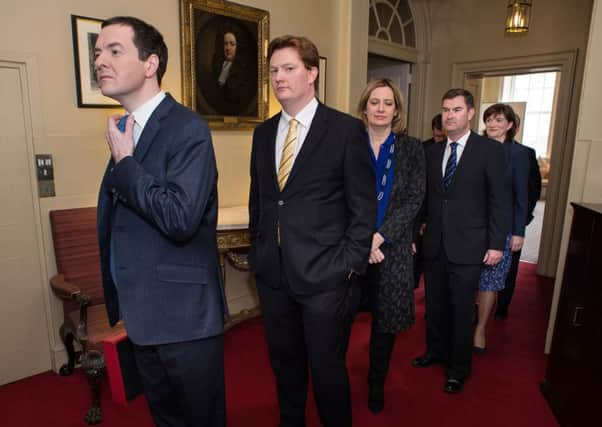Budget 2014: How will Scotland be affected?


In the first reference to Scottish independence, Mr Osborne stated that the Office for Budget Responsibility (OBR) had revised down forecast tax receipts from the North Sea.
He added: “These further downgrades in the tax receipts would leave independent Scots with a shortfall of £1,000 per person.”
Advertisement
Hide AdAdvertisement
Hide AdThe Chancellor also made reference to the economic case against independence, during what will be the last budget before the referendum, but made no reference to the proposed currency union, which he ruled out during a speech in Edinburgh last month.
His main argument was that Scots would be £1,000 worse off in the event of a Yes vote.
Small businesses
Mr Osborne set out plans to extend the grant for small businesses in order to support 100,000 more apprenticeships. With this power already devolved to the Scottish Parliament, Holyrood will receive consequential funding as a result.
The SNP government has heavily promoted schemes such as the small business bonus scheme - although Nationalists are likely to suggest that the Chancellor’s announcement is very limited.
Whisky duty
On the subject of whisky, Mr Osborne confirmed he will freeze duties on Scotch, in another pledge to Scots ahead of the referendum, and for the second year running, pledged to take a penny of the price of a pint of beer.
This appeal to win the support of the nation’s drinkers will be welcomed by industry chiefs and pub-goers alike, but its relative impact at an election remains to be seen.